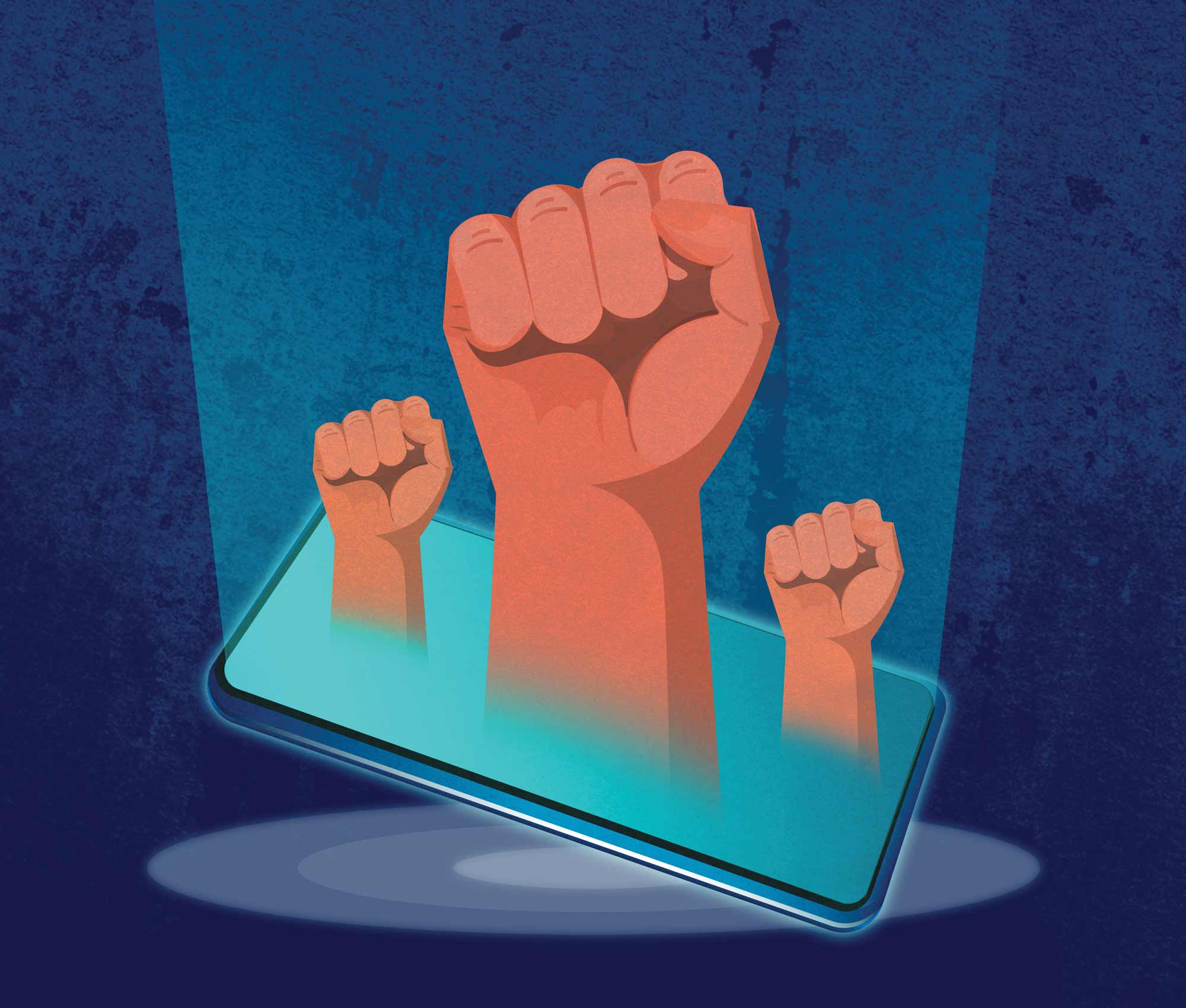Malta’s first anti-bullying NGO, bBrave, has recently launched its mobile application to raise awareness on the different faces of bullying. The all-volunteer-run organisation, thanks to the supporting help of members and sponsors, is spearheading education into bullying, helping those individuals in need. By Christian Keszthelyi.
Classmates would make every day feel like hell on earth for Hector (not his real name) in elementary school. Between the constant name-calling, public mockery, and physical harassment, Hector quickly grew insecure.
Bullying happens everywhere. However, a small team in Malta have found a way to help individuals stand up to bullying. In 2017 Aaron Zammit Apap founded bBrave, the first anti-bullying NGO in the country. ‘We set up bBrave as, while bullying has been around forever, strangely enough, there was no organisation to raise awareness and support victims. Bullying affects everyone and is present in all levels of society,’ Zammit Apap tells THINK Magazine
bBrave is run exclusively by volunteers. There are no employees in the organisation. The volunteers spend their nights, lunch breaks, and weekends working together to help those who have experienced some form of bullying. ‘The team is very committed, and I am very proud of the place we got to in the past four years,’ Zammit Apap says about the organisation that has grown to help so many.
The reach of bBrave was greatly expanded when Apap Zammit’s path crossed with that of Dr Mark Micallef, Head of Department of Computer Science, Faculty of ICT at the University of Malta, who applies a rather practical approach to educating future professionals.
‘The focus is not on what the students build but how they build it, the way they work together, and the problems they solve. Sometimes we encourage clients to be difficult and ask students to do more than they can do,’ Micallef tells THINK.
Apap Zammit became a client, and Micallef’s students aligned with the organisation’s mission and created an app.
Fast forward a few months, and the bBrave app offers extensive support to those who have been bullied or harassed. If people need help, the app will list a number of organisations that could assist them. The app also has two retro-style games, inspired by primary school teacher Greta Antignolo’s book, L-Għajnuna hi Prezzjuża, which helps children realise the gravity of bullying in a playful manner.
Education is Key
During his high school years, some of his water polo teammates would give Hector a hard time on and off, which would trigger unpleasant memories from elementary school, further denting his self-respect.
Education is a key shield to bullying. But without resources, this is hard to accomplish. Antignolo, herself a former bullying victim, researched bullying for her thesis. She quickly realised that there was no book about bullying in the Maltese language. So she ended up writing one herself, entitled L-Għajnuna hi Prezzjuża.
The book ties into the Maltese syllabus, complementing it so that when primary teachers introduce body parts in Maltese in the classroom, they can also elaborate on how to behave appropriately, Antignolo tells THINK. One example would be using hands for clapping or hugging instead of hitting others.
The bBrave app gives another twist on the book by turning its contents into interactive jigsaw puzzles. Via gamification, the player completes fun puzzles and reads the entire book at the same time. The application is a genius example of the marvels of technology married with good intention. But innovation has its dark sides.
The internet has given us various ways to enrich our lives, but it also makes bullying more severe for victims. ‘Unfortunately, if someone was bullied before the advent of the internet, they could go home and find a safe haven by getting away from it all. Today, even if they crawl into bed, they may be bullied on social media. It goes on 24/7. It does not stop,’ Apap Zammit points out. Cyberbullying is not only present in social media anymore. It can be found on messaging and other community-building platforms as well.
Affecting Adults Too
At the age of 30, just when Hector thought he had become thick-skinned and old enough to bear anything, his line manager would bully him to the extent that he considered quitting for good, after almost a decade spent in his line of work.
It is not only kids who suffer bullying. Adults are bullied in their workplace or in relationships. Although the bBrave app targets children, the organisation’s volunteers want to expand the app’s reach. ‘We do intend, eventually, either to develop the app further or create another stand-alone version of the app for adults,’ Zammit Apap says. He adds that the thirst for education and awareness-raising on bullying is immense.
Verbal or psychological bullying is often overlooked. Dialogue and knowledge sharing are key, especially when our media is dominated by a discourse of power play. An imbalance of physical or social power is at the core of any type of bullying.
For the record, Hector is your writer: the very author of this article. Additionally, bullying does leave scars for a lifetime or, at least, as long as I can tell.





Comments are closed for this article!